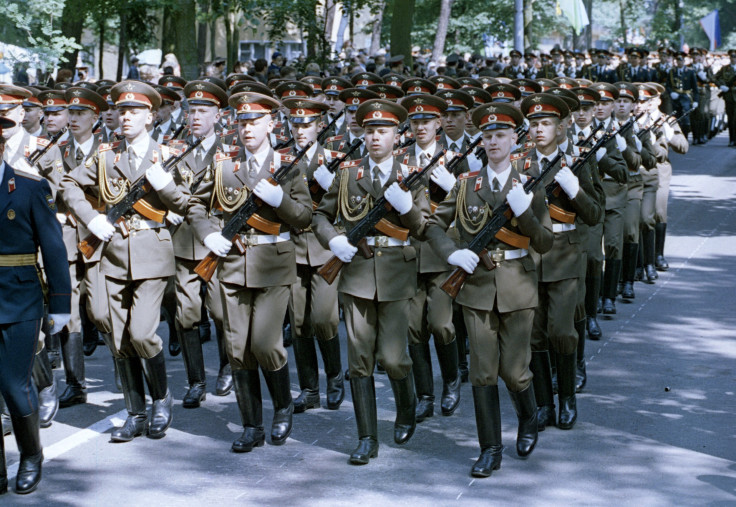Russian Army To Get Upgraded Flame Weapons, Will Modernize 70% Of Its Arsenal By 2020

The Russian army will modernize a major portion of the country’s weaponry over the next six years, head of the Russian Troops of Radiological, Chemical and Biological Defense, or RChBD, announced Thursday. The official also said that the efficiency of "flame weapons," which are said to be useful in close combat, would increase significantly after the upgrade.
According to Maj. Gen. Eduard Cherkasov, the head of RChBD troops, Russia is currently developing special ammunition for the future that will be able to hit “highly secure defense constructions.” The official also stated that the Russian army will have 70 percent of its weaponry and equipment modernized by 2020.
“Shortly, infantry flame units will receive new weaponry with higher fire precision and the penetration before exploding effect, ability to destroy fortified emplacements, armored equipment, and personnel in trenches,” RIA Novosti quoted Cherkasov as saying.
In addition to the upgraded flame weapons, the Russian army will also modify most of its equipment to minimize human involvement in the operation of special equipment. The move, according to Cherkasov, would eliminate human error while reducing the risks to soldiers' lives.
“We have a task of raising the amount of modern equipment to 70 percent by 2020. The progress of the re-equipment process indicates that we will meet the deadline,” Cherkasov told RIA Novosti.
Relations between Russia and the West, particularly the United States and the European Union, have deteriorated in recent months since Russia's annexation of the Crimean peninsula, and its involvement in the separatist conflict in eastern Ukraine, which President Vladimir Putin's government has consistently denied.
On Wednesday, a report citing a NATO commander said that several Russian tanks and other military equipment were identified entering Ukraine. NATO’s claim coincided with a report from the Organization for Security and Co-operation in Europe, which said that 43 unmarked vehicles were spotted traveling through rebel-held areas this week.
© Copyright IBTimes 2025. All rights reserved.





















